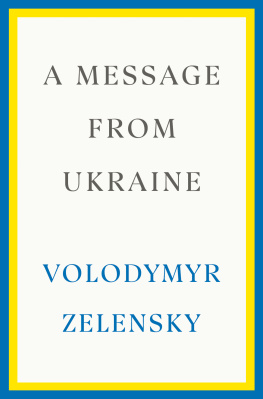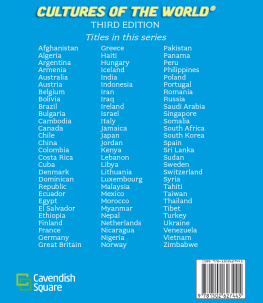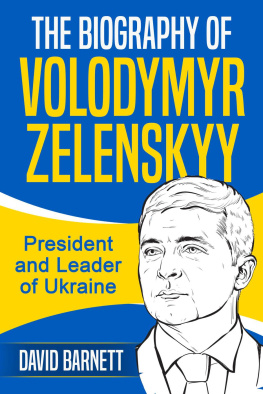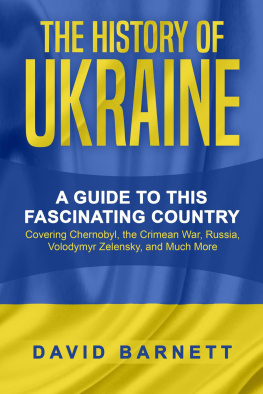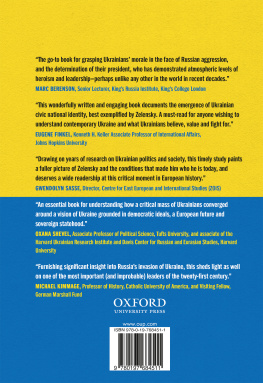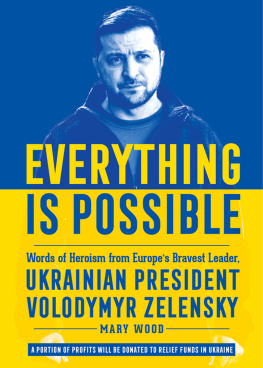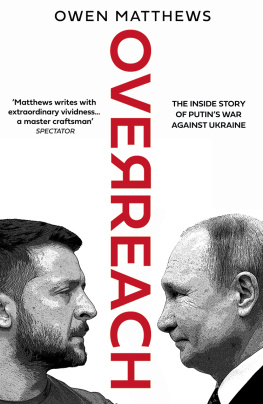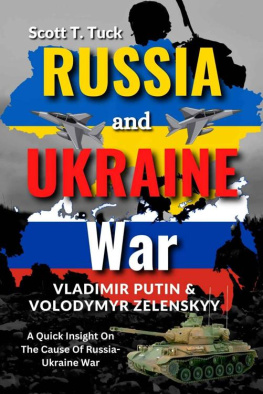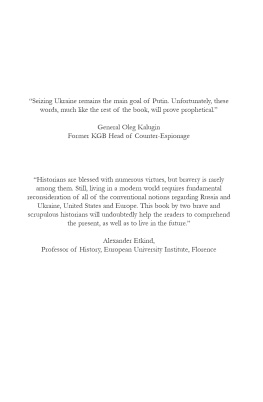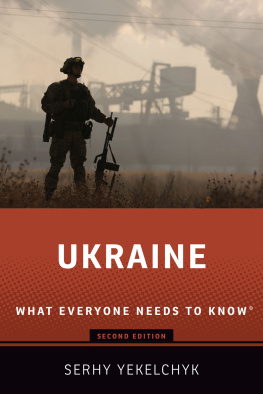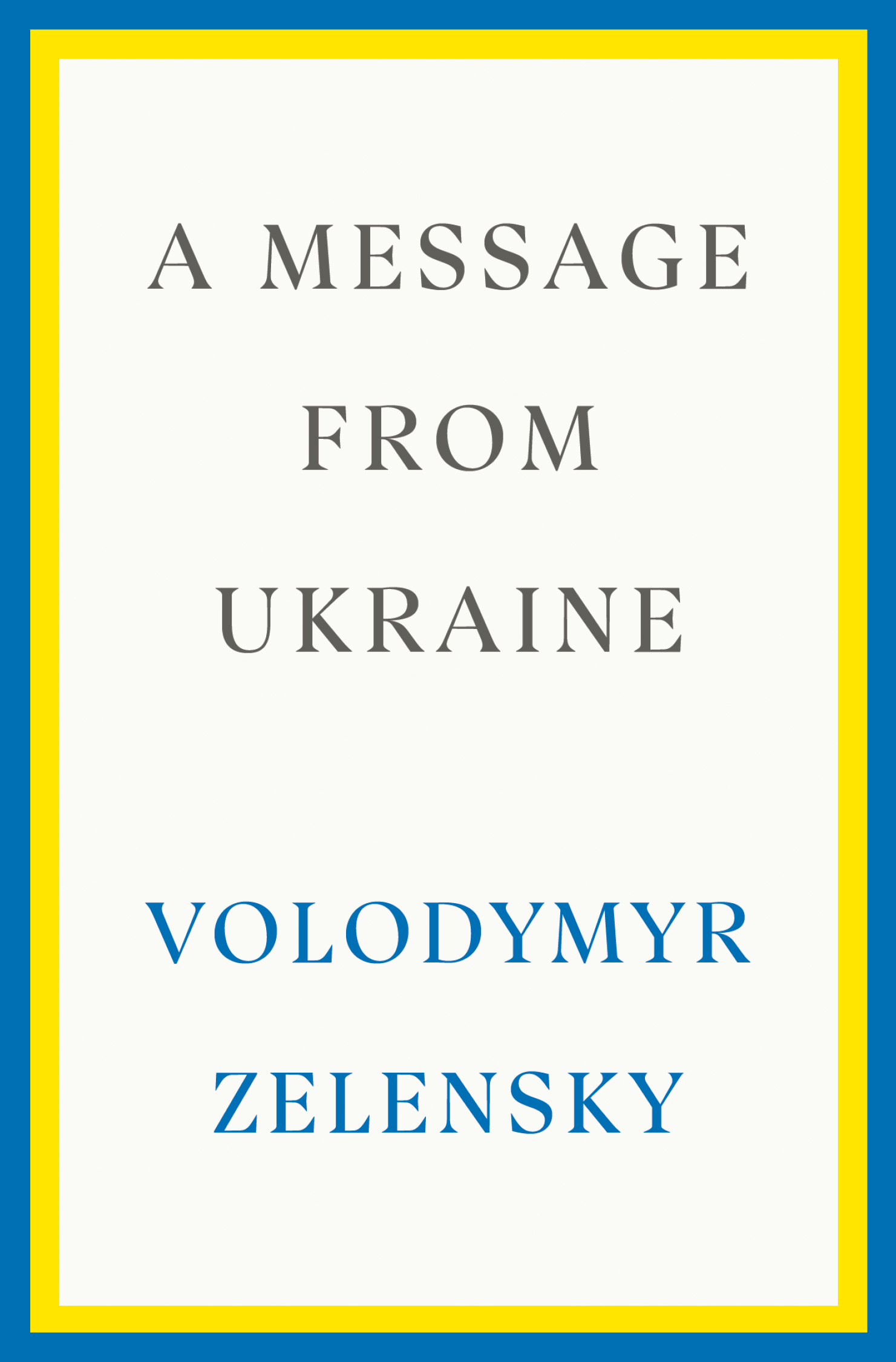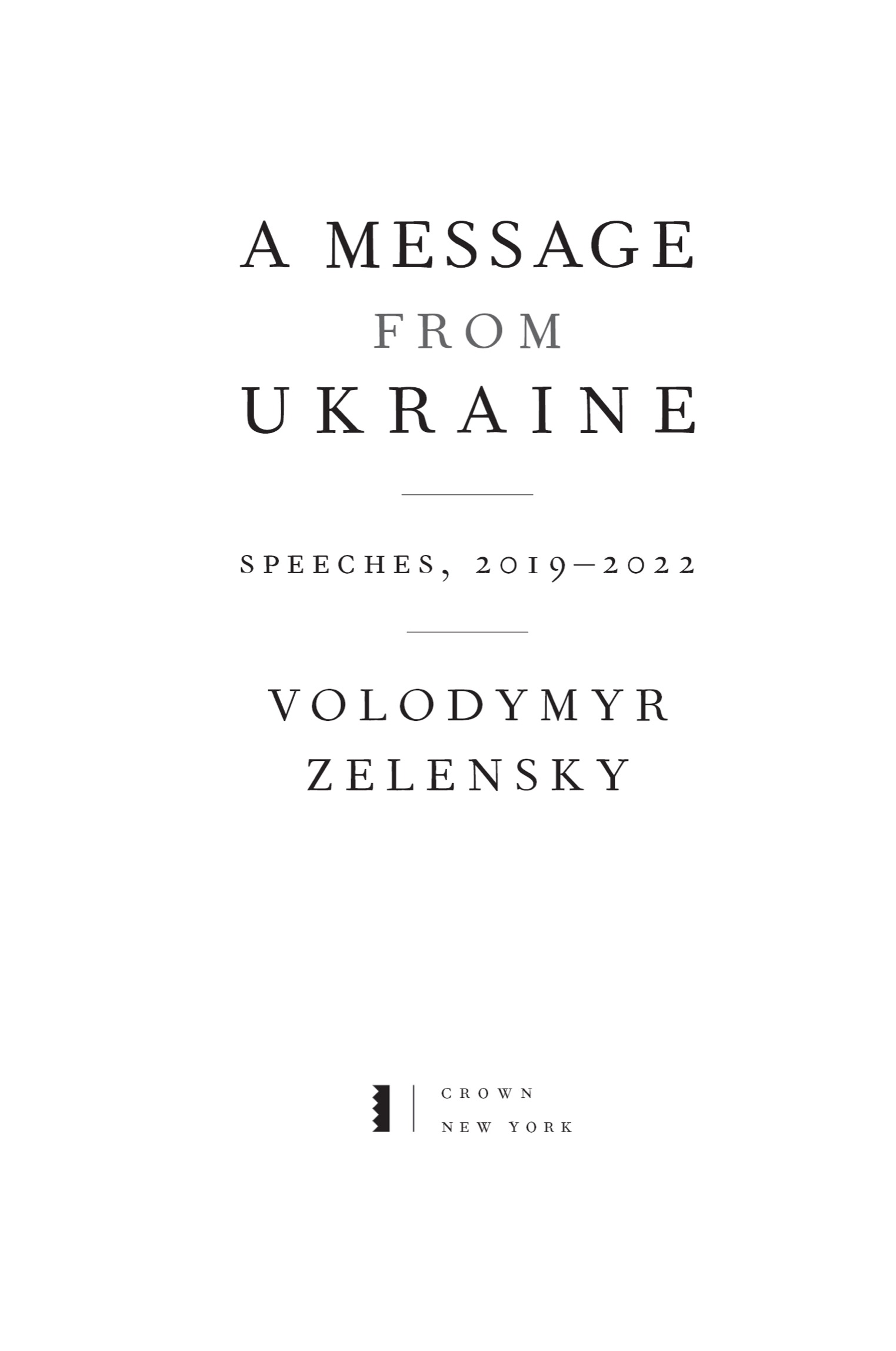All rights reserved.
Published in the United States by Crown, an imprint of Random House, a division of Penguin Random House LLC, New York.
Crown and the Crown colophon are registered trademarks of Penguin Random House LLC.
Simultaneously published in Great Britain by Hutchinson Heinemann, an imprint of Penguin Random House Ltd., London.
The speeches featured in this book have been abridged and edited for clarity. They are licensed under Creative Commons (CC BY 4.0). The original versions can be found at president.gov.ua/news/speeches.
All of President Zelenskys proceeds from this book will go to United24, his initiative to collect donations in support of Ukraine.
Preface: We Are Here
Volodymyr Zelenskys most important speech was also his shortest. It lasted about thirty-two seconds and was delivered thirty-eight hours after Russia began an unprovoked all-out war against his country. Dressed in khaki, Zelensky filmed himself outside a government building on his phone. In the background stood various members of his senior team. Good evening, everyone, he said. We are all here. Our soldiers are here. Civil society is here. We defend our independence. And this is how it will always be from now on.
By the time the video appeared on social media on the evening of 25 February, Ukraine had been under relentless fire for more than a day, Russian paratroopers were storming a military airport in Kyiv, commandos were hunting for Zelensky and people were fleeing their homes. There were rumours spread by Russian officials that Zelensky had left the country and that his government had collapsed. This half-minute video proved otherwise.
In the hours, days and months that followed, Zelensky would address his country, the Russian people and the world over a hundred times. In the first two hundred days of the war, he gave eighty-one speeches to foreign audiences, and even more addressed to his own people. His speeches would draw comparisons with Churchill and his khaki T-shirt would become a global fashion icon. The Ukrainian flag would fly over government buildings and private homes across the Western world; the Brandenburg Gate and the Eiffel Tower would be lit in its yellow and blue.
But it was this short video that would have the greatest impact on the course of the war. It was proof that Putins plan for a lightning-quick victory was failing; in fact, it had already failed. Zelensky did not run, the Ukrainian capital did not fall into Putins hands, and people in the Russian-speaking east of the country did not welcome his troops with flowers. Zelensky was tut: here, in his place, reporting for duty. And so was his country.
The President seemed like an unlikely war leader. He did not choose the part and did not prepare for it: in the weeks leading up to the invasion he even downplayed its likelihood. But when American officials offered him an airlift within hours of Putins invasion, his reply was concise: I need ammo, not a ride. His words became an instant meme, along with those of the Ukrainian defenders on the tiny Zmiinyi Island in the Black Sea when a Russian navy ship ordered them to surrender: Russian warship, go fuck yourself.
Zelenskys simple rhetoric highlighted a stark contrast between the warring regimes. The short, warm word tut repeated nine times in that first videos half-minute felt like the kind of reassurance a parent might use to comfort a scared child whose house was being invaded. Zelenskys use of technology was also significant. Where Putin was a deluded dictator who broadcast at his subjects from behind the high walls of the Kremlin, Zelensky stood with his people. Posting a selfie video online showed Zelensky to be an everyman, an integral part of the social network that was Ukraine.
By February 2022, Zelensky had been President for just under three years. Voters had first known him as Vasyl Holoborodko, a plain-speaking history teacher who is miraculously catapulted into the job of President and takes on Ukraines entire political system the part Zelensky played in a television satire called Servant of the People. After launching his presidential campaign in December 2018, Zelenskys background as an actor and producer would prove crucial to his success. He knew how to mirror his audience, and voters recognised themselves in his likeness. He did not just speak at Ukrainians, he read their lips and articulated their feelings.
Suddenly, that ability was more important than ever. Ukraine had long been a people, a place, and, after the 1991 collapse of the Soviet Union, a state. Now, it was also becoming a civic nation: one defined not by language or ethnicity, nor by its ancient history or faith, but by its values, its way of life, and its peoples readiness to die for it. Zelensky had once lent his voice to Paddington Bear in the Ukrainian dubs of Paddington and Paddington 2. Now, he was lending his voice to the Ukrainian people.
The birthplace of this nation was Maidan Nezalezhnosti Independence Square in Kyiv, the site of several revolutionary uprisings in which Ukrainians had come together to decide their own future. In 2014 they went there to say they belonged in Europe and to overthrow Viktor Yanukovych, a Moscow-backed thug who had tried to deny them this right. The revolution ended in violence. Yanukovych fled, and Russia annexed the Ukrainian territory of Crimea and started a war in the east of the country.
Zelensky was not on Maidan in 2014 and did not participate in what became known as the Revolution of Dignity, although he did call on Yanukovych to step down. It was not that he disagreed with the protestors demands; rather that he was driven by neither nationalism nor ideology, and, stylistically, revolutions were not his genre. As a successful television producer he had a strong sense of his audience slightly cynical, self-reliant, conformist but also deeply grounded. During the revolution, much of this audience stayed at home watching his sitcoms.
But while Zelensky was not a participant in the Maidan uprising, his political career was a reaction to its broken promises. Like much of the country, he cringed when politicians used lofty language while scheming for their own financial advantage, and was appalled when the old elites regrouped, wrapped themselves in new banners and went back to their old ways. But while the establishment carried on as before, the country was changing; its civil society was growing and it was no longer prepared to put up with business as usual. In 2019, Ukrainians rebuked the corrupt post-Soviet elite by voting for Holoborodko aka Zelensky as President.
The idea of an outsider bursting into an oligarchic system where money decided everything and where owning a television station, a bank and a small private army was usually a prerequisite for political power seemed almost as improbable a story as Holoborodkos. But Ukrainians have a taste for the improbable. A pro-Ukrainian Russian speaker from a Jewish family in Eastern Ukraine, Zelensky received the votes of three quarters of the electorate across the entire country. Never before had the electoral map of Ukraine looked so cohesive.

